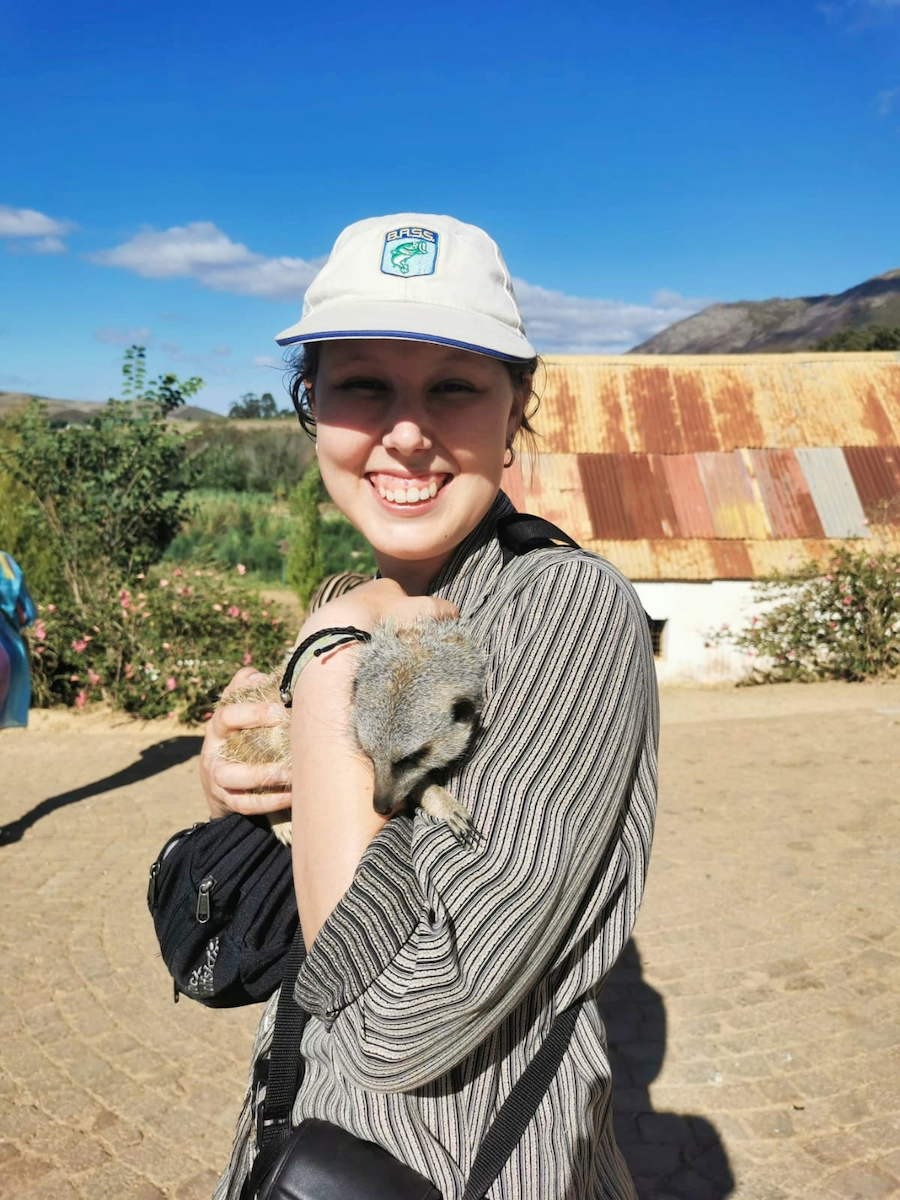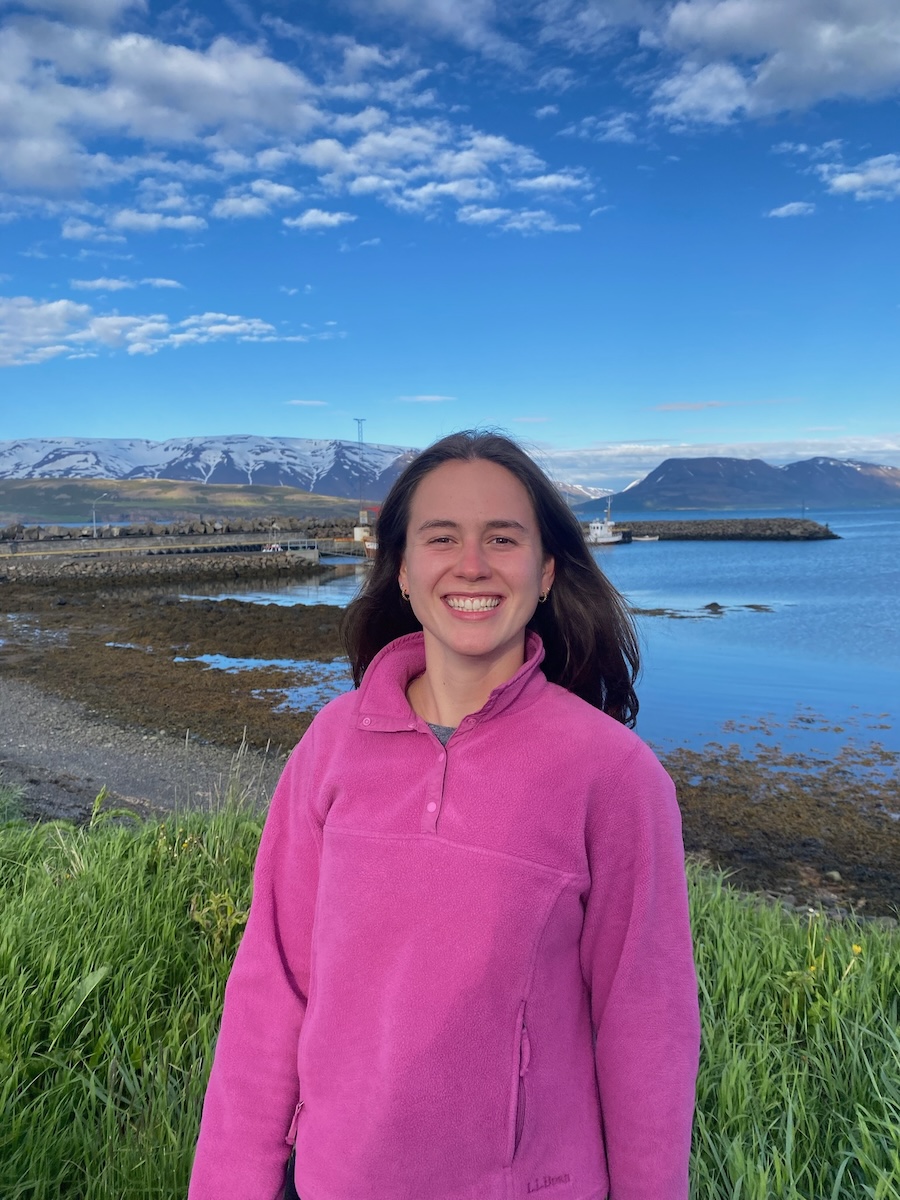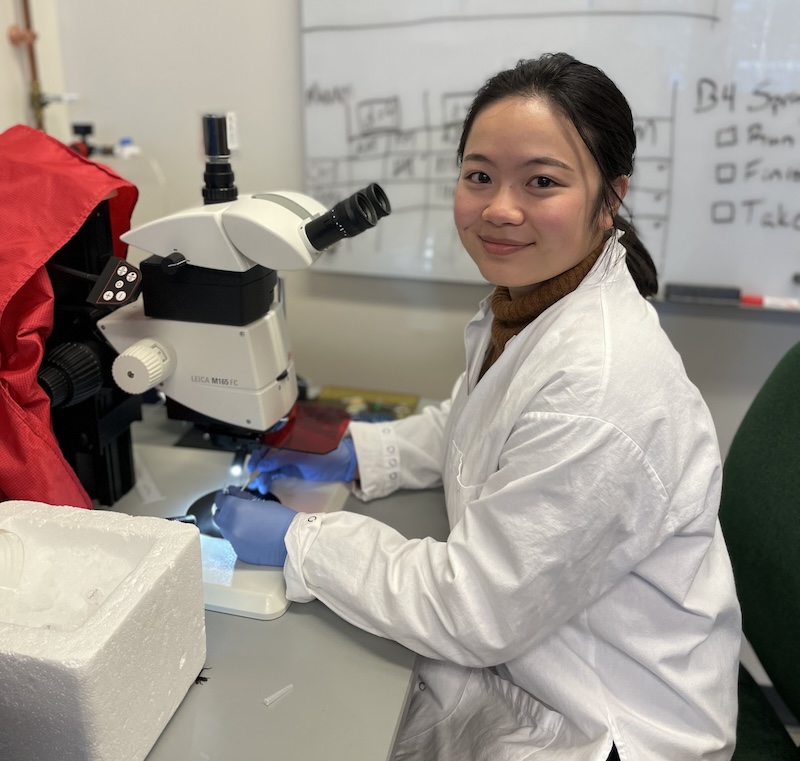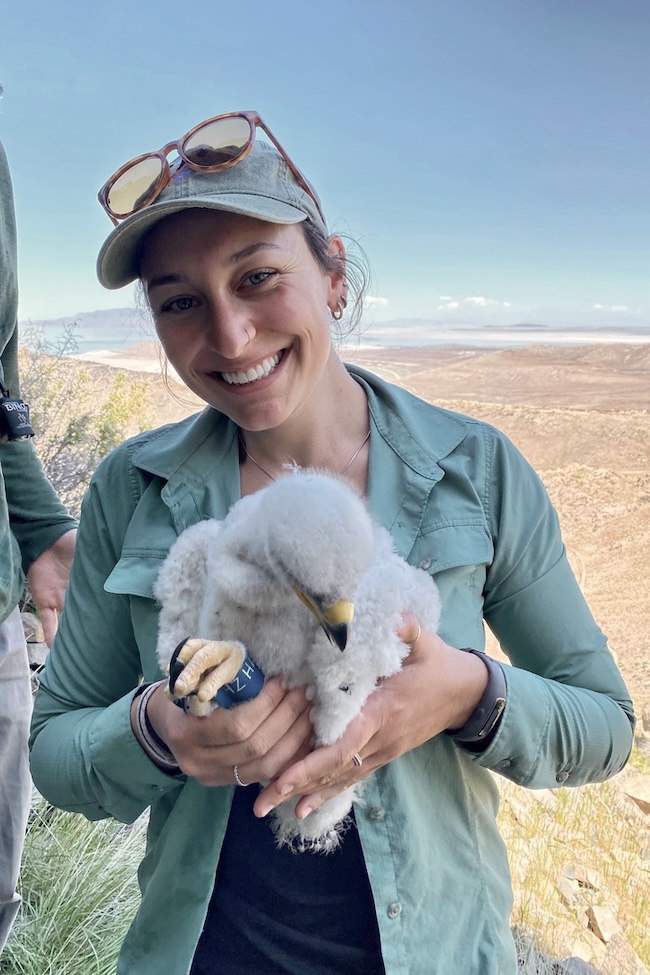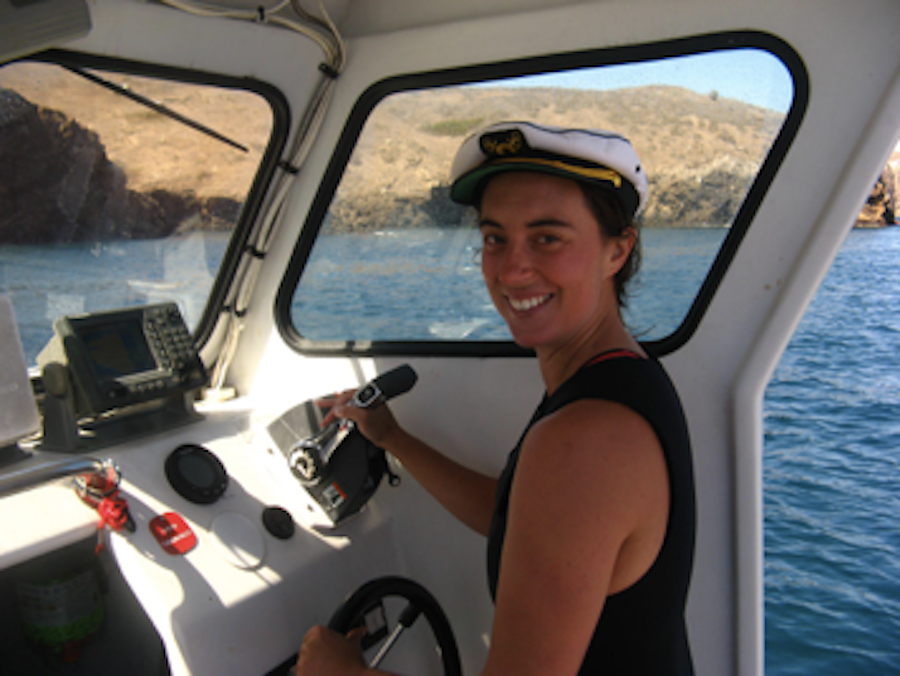What have you been up to since graduating from Bowdoin?
When I graduated from Bowdoin, I had the opportunity to immediately pursue my passion for marine biology with a Thomas J. Watson Fellowship. I traveled to the Cayman Islands, South Africa, Australia, Malaysia, and Panama to explore how local communities are involved in sea turtle ecotourism. These experiences shaped how I think about the balance between natural resource conservation and sustainable use. I built on this in my PhD in ecology, evolution, and marine biology at UC Santa Barbara, where I examined how the removal of large predators by fishing alters food webs, while also exploring how sustainable fishing regulations can be designed to minimize these effects. I became a scientific diver and completed more than 700 dives over the course of my PhD. I also became a certified boat captain and drove my team out to the Channel Islands offshore of Santa Barbara.
I moved back to the East Coast for my postdoctoral fellowship at Rutgers University in New Jersey, where I developed expertise in understanding the links between social and ecological systems and how climate change is impacting both marine food webs and coastal fishing communities. In 2019, I had the opportunity to testify to the House Subcommittee on Water, Oceans, and Wildlife on the effects of climate change on US fisheries. I am now an assistant professor at Wellesley College in Massachusetts, where I am continuing my research on the effects of climate change on marine ecosystems and fisheries.
I am also focused on training my students in science communication to make an impact. I collaborate with government scientists at the National Oceanic and Atmospheric Administration (NOAA), allowing us to integrate research findings with policymaking. My current research examines the climate-driven expansion of the blue crab range north from their native range in the Chesapeake Bay, resulting in rapid increases in abundance in southern New England and first-time occurrences in the Gulf of Maine. My students and I are working with oyster farmers and shellfish harvesters to identify hotspots of blue crab abundance and are using laboratory experiments and historical data analysis to understand how the blue crab range expansion will affect shellfish in the region.
Why biology?
I’ve always been interested in understanding why animals live where they do and the adaptations that influence how they interact with the environment and other species. I chose Bowdoin because it was unique as a liberal arts college where I could play ice hockey and study marine biology. My favorite class at Bowdoin was Marine Biology, where the field labs took us to the incredible coastal environments of Maine. I took full advantage of the Coastal Studies Center, conducting experiments for my senior honors thesis on how urchins responded to crab cues, in collaboration with Professor Amy Johnson and Research Affiliate Olaf Ellers. We found that crabs induced the urchins to have thicker skeletons and smaller gonads, affecting the urchins’ growth rate. Our work was published in the journal Marine Biology.
What advice would you give to current students or recent graduates interested in your field?
The one-on-one research mentoring I experienced at Bowdoin was transformative, giving me an authentic sense of what it means to conduct scientific research and to navigate both successes and failures along the way. My Bowdoin mentors continued to guide me throughout my career, from helping me choose a graduate school to sharing course materials with me as a newly minted assistant professor. Those relationships will last a lifetime!
